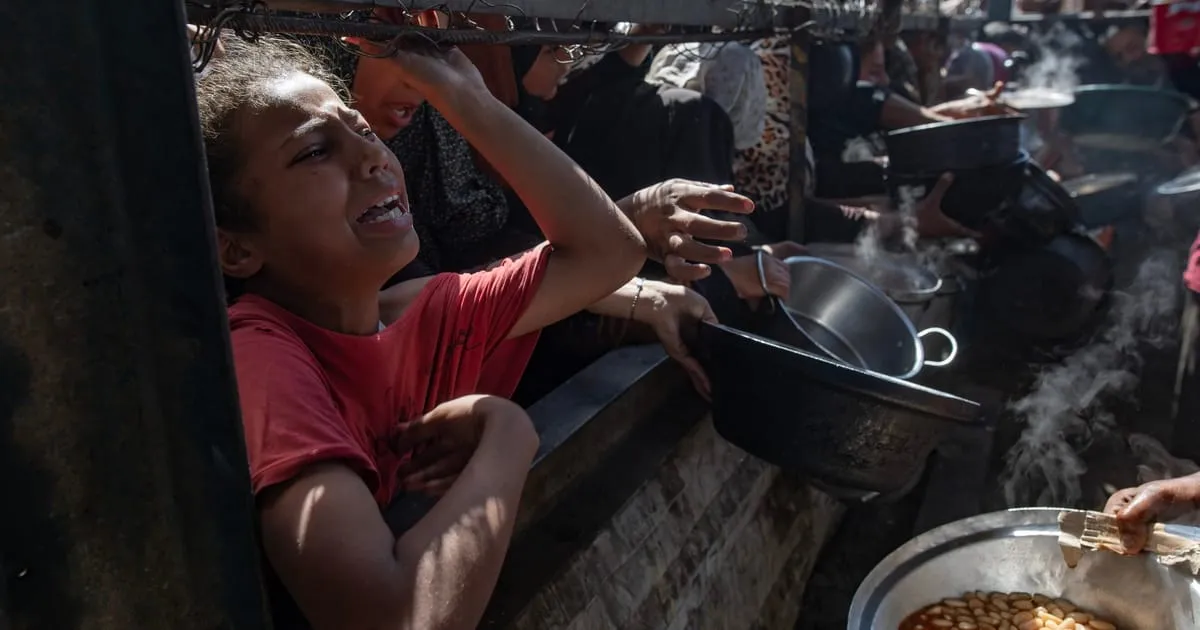
In a significant development, Israel's military announced early Sunday that it will temporarily pause its assault on specific areas of the Gaza Strip and establish humanitarian corridors to facilitate the delivery of aid. This decision by the Israel Defense Forces (IDF) comes in response to mounting international pressure regarding the deteriorating humanitarian situation in Gaza and allegations that Israeli forces are effectively starving the enclave's population.
The IDF declared that the pause in military operations would take effect from 10 a.m. to 8 p.m. in regions including Al-Mawasi, Deir al-Balah, and Gaza City. During this period, humanitarian aid such as food and medicine will be allowed to safely enter the territory, with access granted from 6 a.m. to 11 p.m. This "tactical pause" is intended to provide relief in non-combatant zones; however, the IDF did not specify which military activities would be suspended in these areas, leaving many questions unanswered.
As the humanitarian crisis escalates, there has been increasing pressure on Israel to enhance access to aid for the besieged population of Gaza. Since the resumption of bombardments and ground offensives earlier this year, various aid agencies have accused Israel of obstructing access to aid convoys. As a result, many Gazans have become reliant on aid distribution points located in Israel-controlled militarized zones, which are managed by the U.S.-backed Gaza Humanitarian Foundation (GHF).
Reports from Gaza health officials and former GHF representatives have highlighted disturbing incidents where Israeli troops allegedly fired upon individuals attempting to receive aid at these distribution points. Local health officials have reported that approximately 127 people, including 85 children, have died from malnutrition since the onset of the current conflict in 2023.
Despite the announced pause in military activities, recent reports indicate that Israeli forces killed 38 Palestinians on Sunday morning. This incident occurred even as Israel initiated airdrops of humanitarian aid, which included packages containing essential supplies such as sugar, flour, and canned food. The BBC reported that these airdrops are part of Israel's efforts to alleviate hunger in the Gaza Strip, while neighboring countries like Jordan, the United Arab Emirates, and Egypt are also working to deliver aid through land and air routes.
British Prime Minister Keir Starmer is expected to address the situation in Gaza during his upcoming meeting with U.S. President Donald Trump in Scotland. U.K. media reports suggest that Starmer will likely commend U.S. efforts to negotiate a ceasefire in Gaza and discuss further measures to expedite its implementation. Previous negotiations regarding a ceasefire and hostage release plan in Qatar stalled last week after the U.S. and Israel withdrew their negotiating teams.
As tensions rise in the region, Western leaders have increasingly criticized the Israeli government's military campaign in Gaza. Last week, French President Emmanuel Macron announced his intention to recognize Palestinian statehood, prompting calls for similar actions from leaders in the U.K., Germany, and Italy. Notably, Norway, Ireland, and Spain recognized Palestinian statehood in the previous year.
Since the onset of the conflict on October 7, 2023, Israeli forces have reportedly killed over 60,000 Palestinians in Gaza, a figure that includes a significant number of civilians, according to the health ministry in Gaza. This escalation in violence follows retaliatory actions taken by Israel against attacks from the militant group Hamas, which resulted in the deaths of approximately 1,200 Israelis.
The ongoing situation in Gaza continues to be a focal point of international concern, with calls for humanitarian aid and political solutions growing louder amid the escalating conflict.